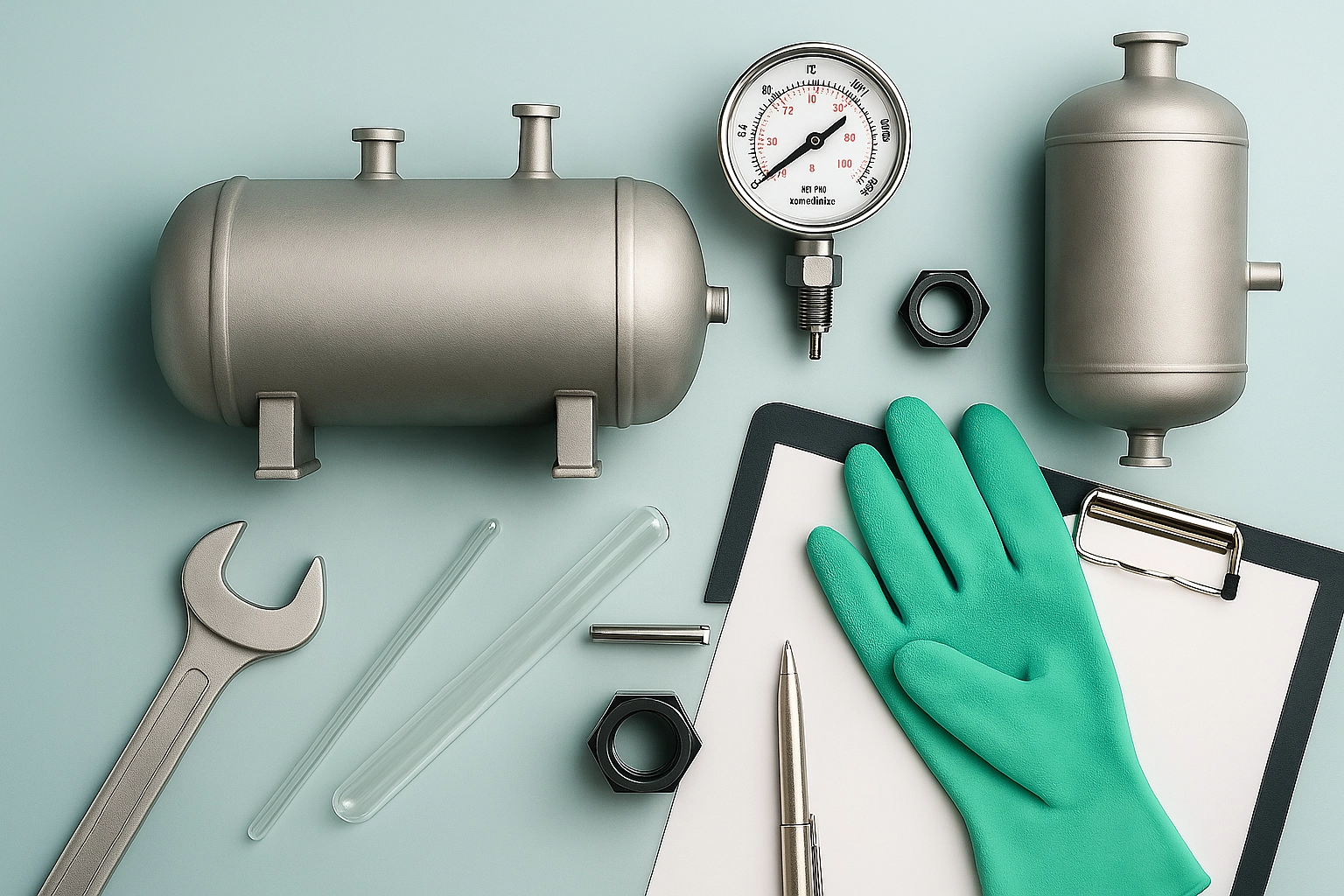Pressure Vessels and Storage Tanks Inspection
The inspection of pressure vessels and storage tanks is a critical process in ensuring safety and compliance with international standards. These structures are used across various sectors, including oil and gas, chemical processing, pharmaceuticals, and utilities, where containment and transportation of hazardous materials demand stringent quality control.
Our laboratory specializes in providing comprehensive inspections that cover the entire lifecycle of these vessels and tanks—from initial design review to routine maintenance checks. Our experts are equipped with state-of-the-art equipment and follow internationally recognized standards such as ASME (American Society of Mechanical Engineers) codes, EN 13445 for pressure vessels, and ISO/TS 25028-1:2007 for storage tanks.
During inspections, we focus on several key areas including:
- Material thickness measurement
- Visual inspection for visible defects
- Non-destructive testing (NDT) using ultrasonic, radiographic, and magnetic particle techniques
- Hydrostatic testing to determine the vessel's integrity under pressure
The results of these inspections are crucial for identifying potential hazards early on, ensuring regulatory compliance, and maintaining operational efficiency. Our detailed reports provide actionable insights that help stakeholders make informed decisions regarding maintenance schedules and safety protocols.
Scope and Methodology
| Aspect | Description |
|---|---|
| Initial Assessment | Conducting a thorough review of design drawings and specifications to ensure adherence to relevant standards. |
| In-service Inspection | Performing periodic checks on the integrity, material condition, and operational effectiveness of vessels and tanks. |
| Routine Maintenance | Providing recommendations for cleaning, lubrication, and other necessary upkeep to extend service life. |
| Method | Description |
|---|---|
| Ultrasonic Testing (UT) | Utilizes high-frequency sound waves to detect internal flaws without damaging the structure. |
| Magnetic Particle Inspection (MPI) | Applies magnetic fields and detects surface or near-surface discontinuities by using fine iron filings. |
| Radiographic Testing (RT) | Uses X-rays to identify defects within the structure, providing detailed images of the internal condition. |
Customer Impact and Satisfaction
Our clients benefit significantly from our pressure vessel and storage tank inspection services. By adhering to strict quality control measures, we help them avoid costly downtime and potential safety incidents. Our detailed reports not only meet regulatory requirements but also provide actionable insights that enhance operational efficiency.
Customer feedback consistently highlights the reliability and accuracy of our inspections. We pride ourselves on delivering timely results with a high degree of precision, ensuring that all stakeholders can focus on other critical aspects of their business while we handle the technical details.
Competitive Advantage and Market Impact
- Adherence to International Standards: We strictly follow ASME, EN, ISO/TS standards ensuring compliance with global best practices.
- State-of-the-Art Equipment: Utilizing advanced ultrasonic, radiographic, and magnetic particle testing techniques for unparalleled accuracy.
- Detailed Reporting: Providing comprehensive reports that include not just findings but also recommendations for improvement and maintenance schedules.
- Expertise and Experience: Our team comprises highly skilled professionals with extensive experience in the field of pressure vessel and storage tank inspections.





